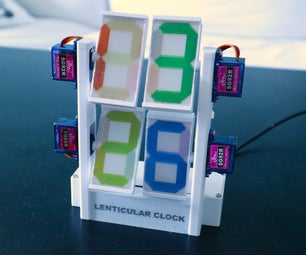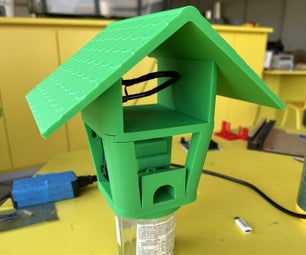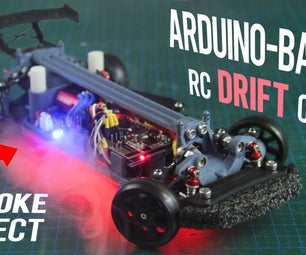Introduction: DIY 150W Inverter
In this instructable I am going to built a portable power inverter that converts 12v DC TO 220v AC. This is probably the smallest portable homemade inverter you will find here. The goal is to built this inverter to fulfill the need of having a line voltage on your work bench that is far away from any power outlet.
This power inverter is able to deliver 150 watts of continuous power which is good enough for small appliances such as a hot glue gun or a soldering iron.
Step 1: DIY 150W Inverter
In this instructable I am going to built a portable power inverter that converts 12v DC TO 220v AC. This is probably the smallest portable homemade inverter you will find here. The goal is to built this inverter to fulfill the need of having a line voltage on your work bench that is far away from any power outlet.
This power inverter is able to deliver 150 watts of continuous power which is good enough for small appliances such as a hot glue gun or a soldering iron.
Step 2: Required Stuff!
1.150W Inverter Circuit
2.Li-Po rechargeable batteries x 9
3.LED x 5 (For making battery indicator)
4.PCB
5.12V-1A Battery Charger
6. Atx Power Supply Casing
7.Bunch of wires
Step 3: Making the Battery Pack
The battery pack is a 12v 1200mAh made out of three lithium polymer cells each having a voltage of approximately 4 volt.
First all three cells are glued together and then all of them are connected in series.
These battery pack consists of 3 sub-packs of 3-3 cells which makes 3 packs of 12volts connected in parallel.
Step 4: Making Battery Level Indicator
This Circuit diagram shows the connection for making a 12v battery level indicator.
Each resistance value= 1 Ohms
Step 5: Preparing the ATX CASING to Fit the 3-Pin Socket and Switch for the Battery Supply
Cut a rectangular socket from the ATX casing to fir the 3 pin socket as shown in the picture.
Step 6: Fitting the INVERTER Circuit and Battery Level Indicator
I made a fitting of the circuit by insulating the back part of the circuit to prevent short circuit because if the soldering joints of inverter circuit touches the ATX casing then it may cause a Electric shock or even a short circuit.
A short circuit may be dangerous and even cause fire in the batteries.
Insulation is done with weak cardboard or hot glue gun.
Step 7: Connecting the Battery With the Circuit
Connecting the battery terminals with a switch before connecting to the circuit to prevent battery heating during standby.
Fitting the battery inside the ATX was a tricky stuff to do. The room space was really low after fitting the inverter circuit and the indicator.
And due to 3 pin socket, the room for the battery pack was really low.
Step 8: Final Step:- Connecting the Battery Charger
Connecting the battery charger with a switch is the last step for this project.
CHEERS!!!
You have made your own Inverter.
It can run small table fans, CFLs, LED bulbs, Phone Chargers etc.










